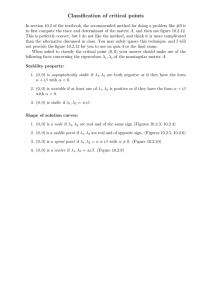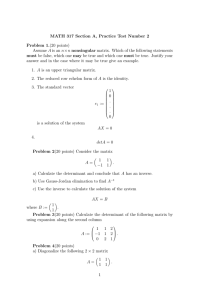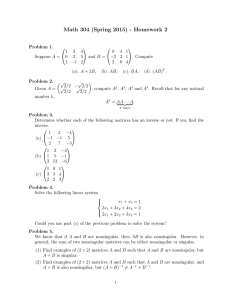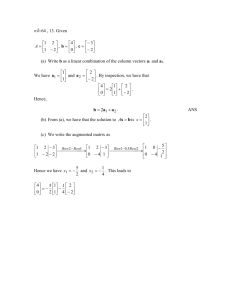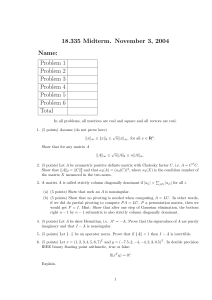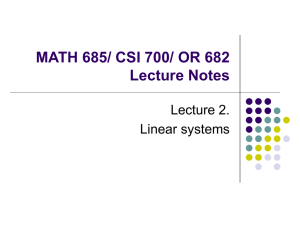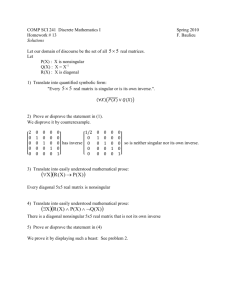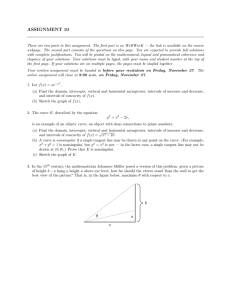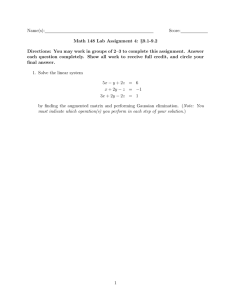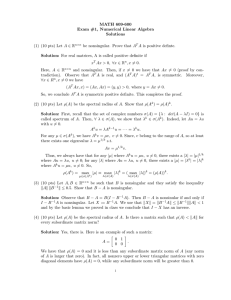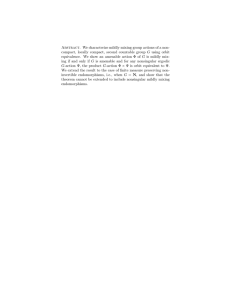MATH 557 Homework Set #5 Fall 2015
advertisement
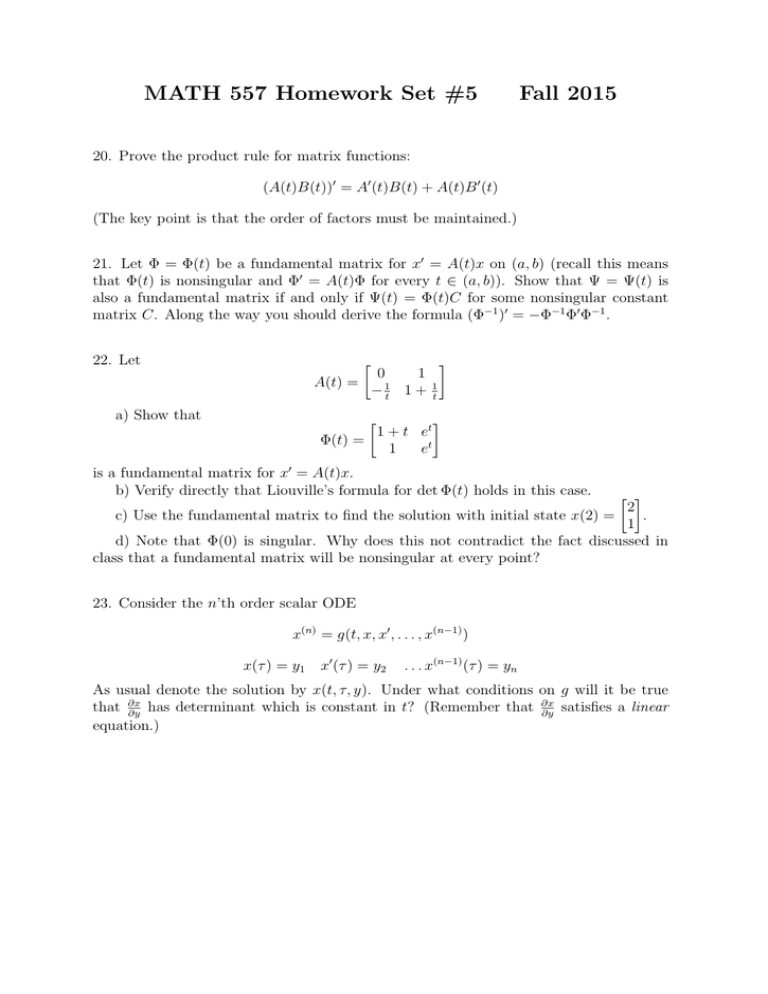
MATH 557 Homework Set #5 Fall 2015 20. Prove the product rule for matrix functions: (A(t)B(t))0 = A0 (t)B(t) + A(t)B 0 (t) (The key point is that the order of factors must be maintained.) 21. Let Φ = Φ(t) be a fundamental matrix for x0 = A(t)x on (a, b) (recall this means that Φ(t) is nonsingular and Φ0 = A(t)Φ for every t ∈ (a, b)). Show that Ψ = Ψ(t) is also a fundamental matrix if and only if Ψ(t) = Φ(t)C for some nonsingular constant matrix C. Along the way you should derive the formula (Φ−1 )0 = −Φ−1 Φ0 Φ−1 . 22. Let 0 1 A(t) = − 1t 1 + 1 t a) Show that 1 + t et Φ(t) = 1 et is a fundamental matrix for x0 = A(t)x. b) Verify directly that Liouville’s formula for det Φ(t) holds in this case. 2 c) Use the fundamental matrix to find the solution with initial state x(2) = . 1 d) Note that Φ(0) is singular. Why does this not contradict the fact discussed in class that a fundamental matrix will be nonsingular at every point? 23. Consider the n’th order scalar ODE x(n) = g(t, x, x0 , . . . , x(n−1) ) x(τ ) = y1 x0 (τ ) = y2 . . . x(n−1) (τ ) = yn As usual denote the solution by x(t, τ, y). Under what conditions on g will it be true has determinant which is constant in t? (Remember that ∂x satisfies a linear that ∂x ∂y ∂y equation.)
